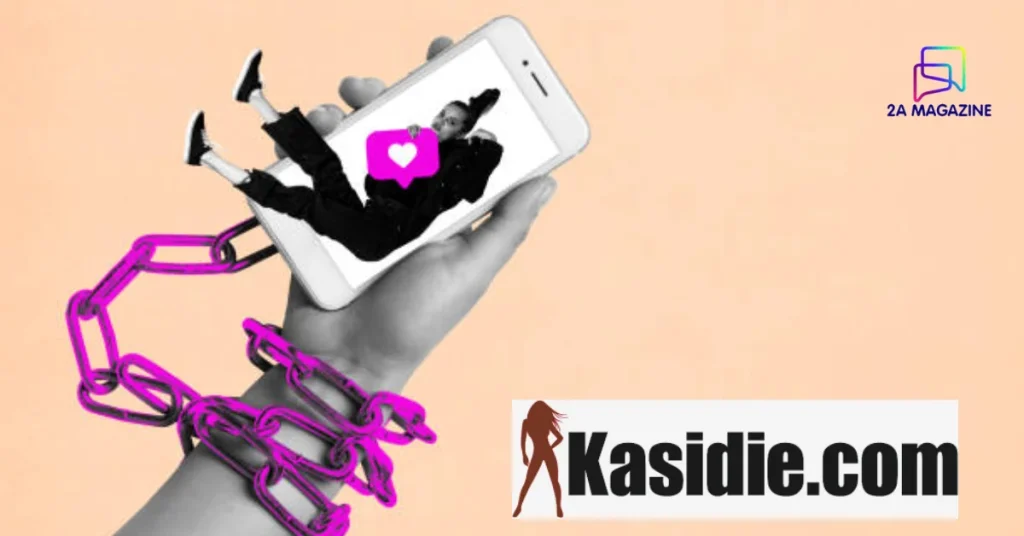The Invitation No One Talks About
On the surface, Kasidie looks like just another niche social app. But beneath its glossy user interface and provocative branding lies a cultural petri dish—a space where modern relationships are being rewritten, not just reimagined. In a world still catching its breath from the seismic social shifts of the past two decades—#MeToo, polyamory visibility, gender fluidity, and the crumbling of monogamous expectations—Kasidie is not merely following the wave. It’s one of the few platforms helping to shape it.
Like Burning Man coded into an app, Kasidie offers more than connection. It offers permission. To unlearn. To explore. To design a relational identity as bespoke as your streaming playlist. And while tech titans chase scale and speed, Kasidie moves with an entirely different rhythm: intimacy over virality, honesty over performance.
Readers also enjoyed this connected article—check it out.
What Is Kasidie? A Redesign of Social Contracts
Kasidie is a social networking platform primarily designed for open-minded adults exploring ethical non-monogamy, swinging, and fluid relationship models. But to define it narrowly is to miss the forest for the trees. It’s less a “dating” app and more a relationship laboratory—a digital commons where users experiment with the rules of intimacy, desire, and community.
The app combines event planning, location-based discovery, and private communication with a community vibe reminiscent of early social networks—but with one twist: authentic openness is the currency. There’s no swiping. No algorithms designed to addict. Instead, there’s a focus on meaningful group interaction and real-world meetups.
Origins: From Swinger Site to Cultural Sandbox
Founded in 2006, Kasidie began as a site for swingers. At the time, it was a relatively underground corner of the internet. But as society’s relationship with relationships began to change—fueled by Reddit communities, podcasts like Savage Lovecast, and bestsellers like The Ethical Slut—Kasidie quietly evolved. It didn’t just serve a subculture. It became a mirror for how digital spaces could reflect emerging interpersonal values.
Philosophically, Kasidie is rooted in consensual plurality—an idea that truth in relationships isn’t found in uniformity but in negotiated authenticity. It’s a digital embodiment of what cultural theorist Judith Butler called “performativity”—not in the pejorative sense, but in the creative: we are not born into fixed scripts. We write and rewrite them as we go.
Kasidie in the Real World: Beyond the Bedroom
While its brand may be anchored in alternative sexuality, the platform’s core mechanics have implications far beyond personal pleasure.
Society: A Pressure Valve for Norm Fatigue
In a hyper-scripted world, Kasidie provides a rare space for authenticity. It challenges shame-based models of intimacy and offers users new ways to construct identity relationally, rather than individually.
Business: UX Lessons from the Fringe
Startups can learn from Kasidie’s prioritization of consent-driven design. Every interaction—whether RSVP’ing to a party or messaging someone new—is opt-in. The experience centers around negotiation, a rare virtue in digital design.
Design: Networked Trust Over Gamification
Kasidie emphasizes community over clickbait. Unlike mainstream social media platforms that thrive on superficial engagement, Kasidie users often participate in local events, vetting each other through face-to-face interactions—essentially reintroducing embodied trust into the digital age.
Education: A Living Textbook on Relational Literacy
Imagine a university course on modern love taught via Kasidie. The app could serve as a case study in applied communication, conflict resolution, and consent education—a syllabus lived rather than read.
Don’t miss our newest articles—they’re all waiting at 2A Magazine.
How It Differs: Not Tinder, Not Facebook, Not FetLife
Where Tinder thrives on instant gratification, and Facebook on algorithmic voyeurism, Kasidie builds participatory intimacy. And unlike FetLife, which operates more like a social catalog for BDSM and kink communities, Kasidie is event-centric and socially integrative—focused on real-life experiences over digital identity badges.
In essence, Kasidie is not about matching. It’s about meeting. It’s not about profiles. It’s about possibility.
Future Implications: Where Consent Meets the Algorithm
Risks
- Privacy leaks could have deeper social consequences due to the app’s taboo-breaking nature.
- The commodification of non-traditional relationships could lead to fetishization rather than liberation.
- Community policing is difficult in loosely moderated, ideologically diverse spaces.
Opportunities
- Design models based on radical transparency and mutual respect can influence everything from workplace tools to conflict resolution apps.
- The mainstreaming of relational fluidity might challenge outdated HR and healthcare policies based on binary relational models.
Ethical Terrain
Kasidie forces us to confront ethical dilemmas around digital consent, representation of sexuality, and the boundaries of public versus private identity. It calls into question who gets to define “normal” in an increasingly fragmented society.
Designing for Relational Fluidity: Best Practices
To design a system like Kasidie—or borrow from its ethos—consider these principles:
Normalize Negotiation
Every feature should enable open-ended interaction, allowing users to state preferences, boundaries, and intentions without fear.
Prioritize Consent-Centric UI
Clear, opt-in flows; no dark patterns. Affirmation over assumption.
Enable Context-Rich Profiles
Move beyond tags and stats. Allow stories, moods, and micro-updates to shape impressions.
Foster Community, Not Crowds
Small-scale events, interest-based group chats, and verified meetups create depth over breadth.
Integrate Reflection Tools
Offer built-in features for journaling, boundary-setting, and post-event debriefs—turning experience into growth.
Conclusion: What Happens When Love Is Open-Sourced?
Kasidie may not be in your app store’s Top 10, but it’s quietly sketching blueprints for a future where relational design becomes as critical as UX or fintech. It reminds us that how we connect defines who we become.
When technology enables people to redesign the rules of closeness, intimacy, and care, it doesn’t just change dating. It changes culture. In this way, Kasidie is less a platform and more a portal—into a world where freedom is structured, vulnerability is welcomed, and connection is no longer confined to the binary of “single” or “taken.”
Ready for a deeper dive? Our most popular pieces live at 2A Magazine.







